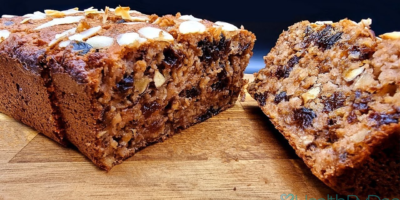Navigating the complexities of a Polycystic Ovary Diet can be a transformative step for those diagnosed with polycystic ovary syndrome (PCOS). This dietary approach focuses on managing symptoms and improving overall health through informed food choices. By understanding what to eat with PCOS, individuals can create a tailored PCOS diet plan that supports hormonal balance and weight management. Incorporating nutrient-rich foods and avoiding processed sugars are essential components of effective PCOS nutrition. In this article, we will explore delicious PCOS meal ideas and how to implement a practical PCOS management diet that can lead to lasting wellness.
When it comes to managing polycystic ovary syndrome, adopting specific nutritional strategies can significantly impact overall health. Known as a PCOS-friendly eating plan, this approach emphasizes whole foods and balanced meals to help regulate insulin levels and combat symptoms. Individuals often seek guidance on how to optimize their diet to alleviate issues associated with this condition. By focusing on healthy eating habits, they can discover what foods are beneficial while learning to avoid those that may exacerbate their symptoms. This comprehensive guide will provide insights into effective meal planning and nutritional tips tailored for those dealing with PCOS.
Polycystic Ovary Syndrome (PCOS)
Polycystic Ovary Syndrome (PCOS) is a complex hormonal disorder that affects many women during their reproductive years. It is characterized by a variety of symptoms, including irregular menstrual cycles, excessive hair growth, and difficulties with weight management. The underlying causes of PCOS are multifaceted, with factors such as genetics, insulin resistance, and inflammation playing significant roles. Understanding PCOS is crucial for developing effective management strategies, including dietary changes that can alleviate symptoms and improve overall health.
Women diagnosed with PCOS often struggle with the physical and emotional ramifications of the condition. The hormonal imbalances can lead to metabolic issues, making it challenging for those affected to maintain a healthy weight. This struggle is compounded by the societal pressures surrounding body image and health. Therefore, it is vital for individuals with PCOS to seek comprehensive care that includes education about their condition, emotional support, and practical advice on managing symptoms through lifestyle modifications.
The Importance of a Polycystic Ovary Diet
A Polycystic Ovary Diet is tailored to help manage the symptoms of PCOS by focusing on nutrient-dense foods that promote hormonal balance and metabolic health. Key components of this diet include whole grains, lean proteins, healthy fats, and a variety of fruits and vegetables. Incorporating foods that are low in glycemic index can help stabilize insulin levels, a critical factor for women with PCOS. Such dietary choices not only assist in managing weight but also reduce the risk of developing diabetes and other related health issues.
Additionally, the Polycystic Ovary Diet emphasizes the importance of regular meal timing and portion control to maintain stable blood sugar levels. By avoiding processed foods that are high in sugar and unhealthy fats, individuals can significantly improve their health outcomes. Integrating foods like cinnamon and black grapes, known for their beneficial effects on insulin sensitivity, can further enhance the diet’s effectiveness. Ultimately, this dietary approach aims to empower women with PCOS to take control of their health and well-being.
Key Foods to Include in Your PCOS Diet Plan
When creating a PCOS diet plan, certain foods stand out due to their beneficial properties. Foods rich in fiber, such as whole grains, legumes, and vegetables, can help regulate blood sugar levels and promote satiety, which is essential for weight management. Proteins from sources like chicken, fish, and plant-based options also play a vital role in balancing hormones and providing sustained energy throughout the day. Incorporating healthy fats from nuts, seeds, and avocados is equally important, as they support hormonal function and overall health.
Moreover, specific superfoods like cinnamon and black grapes can be particularly advantageous for women with PCOS. Cinnamon is known for its ability to improve insulin sensitivity, while black grapes contain resveratrol, which has been shown to help regulate menstrual cycles and reduce symptoms of PCOS. By including these foods in your diet, you can create a balanced meal plan that not only addresses the unique challenges of PCOS but also enhances overall nutritional intake.
What to Eat with PCOS: Meal Ideas and Tips
Creating meal ideas for individuals with PCOS involves focusing on nutrient-rich, whole foods that help manage symptoms. Breakfast options might include a vegetable omelet paired with whole-grain toast and a side of fruit, providing a balanced start to the day. For lunch, a quinoa salad with mixed vegetables, chickpeas, and a drizzle of olive oil can offer the necessary proteins and healthy fats while maintaining low glycemic levels. Incorporating a variety of fruits and vegetables throughout the day ensures that essential vitamins and minerals are consumed.
Dinner can feature grilled salmon with steamed broccoli and sweet potato, combining lean protein with complex carbohydrates and fiber. Snacks can include Greek yogurt topped with berries or a handful of nuts, both of which are beneficial for maintaining stable blood sugar levels. By planning meals that prioritize whole, unprocessed foods, individuals can create a sustainable eating pattern that supports their health goals and addresses the symptoms associated with PCOS.
Foods to Avoid for Better PCOS Management
For effective PCOS management, it is crucial to identify and avoid certain foods that can exacerbate symptoms. Sugary foods and beverages are among the primary culprits, as they can cause rapid spikes in blood sugar levels, leading to insulin resistance over time. Processed foods, particularly those high in refined carbohydrates and unhealthy fats, should also be minimized, as they can contribute to weight gain and worsen hormonal imbalances.
Additionally, it’s advisable to steer clear of excessive caffeine and alcohol, which can interfere with hormonal regulation and overall well-being. Choosing whole, unprocessed foods whenever possible will provide the nutrients needed to support a healthy body and mind while managing PCOS symptoms effectively. By making these conscious dietary choices, individuals can enhance their quality of life and decrease the impact of PCOS on their daily routines.
Nutrition Recommendations for Polycystic Ovary Syndrome
Nutrition plays a pivotal role in managing Polycystic Ovary Syndrome. A well-balanced diet rich in whole foods, combined with regular physical activity, can significantly reduce the severity of PCOS symptoms. Medical nutrition therapy should focus on high-fiber foods that help regulate insulin levels and promote a healthy weight. It is essential to prioritize fruits, vegetables, whole grains, and lean proteins, which can provide the body with the necessary nutrients while minimizing unhealthy fat intake.
Additionally, incorporating a variety of healthy fats, such as those found in nuts, seeds, and avocados, can further support hormonal balance. Understanding the impact of food choices on overall health is vital for women with PCOS. By adhering to nutrition recommendations tailored to their individual needs, women can achieve better health outcomes and improve their quality of life.
Implementing a Polycystic Ovary Diet: Steps to Success
Implementing a Polycystic Ovary Diet involves a series of strategic steps aimed at fostering long-term health and symptom management. The first step is to educate yourself about PCOS and how it affects your body, which will empower you to make informed dietary choices. Next, creating a meal plan that prioritizes whole foods and minimizes processed options is essential for balancing hormones and managing weight. Regular meal times and portion control can help maintain stable blood sugar levels, which is crucial for women with PCOS.
In addition to dietary changes, incorporating physical activity into your daily routine can enhance the effectiveness of the diet. Exercise not only aids weight management but also improves insulin sensitivity and overall mood. Keeping track of your progress and adjusting your meal plan as needed will help ensure long-term success. By committing to these steps, you can effectively implement a Polycystic Ovary Diet that supports your health and well-being.
Sample PCOS Diet List: A Practical Guide
To aid in the transition to a Polycystic Ovary Diet, a sample diet list can serve as a practical guide. Day one might start with a warm glass of water with cinnamon upon waking, followed by a balanced breakfast of eggs, whole-grain bread, and seasonal vegetables. Lunch could include a hearty salad with tuna and healthy fats from olive oil, while dinner features a nourishing dish of zucchini with ground meat and bulgur pilaf. Snacks throughout the day might include fruit and nuts, ensuring that energy levels remain stable.
Days two and three can follow similar patterns, incorporating a variety of nutrient-dense foods while maintaining low-glycemic options. This sample diet list not only provides structure but also encourages diversity in food choices, which is essential for meeting nutritional needs. By following a structured meal plan, individuals can effectively manage their PCOS symptoms while enjoying a variety of delicious and healthy foods.
Frequently Asked Questions
What is the best Polycystic Ovary Diet for managing PCOS symptoms?
The best Polycystic Ovary Diet focuses on whole foods, including plenty of fruits, vegetables, lean proteins, and healthy fats. A Mediterranean-style diet, rich in fiber and low in processed sugars, can help manage insulin levels and symptoms associated with PCOS.
What should I include in my PCOS diet plan?
A comprehensive PCOS diet plan should include high-fiber foods, lean proteins, healthy fats, and low-glycemic index carbohydrates. Foods such as whole grains, legumes, nuts, seeds, and plenty of vegetables are essential. Incorporating cinnamon and black grapes can also be beneficial for blood sugar regulation.
What to eat with PCOS to improve symptoms?
To improve symptoms of PCOS, focus on consuming whole foods like leafy greens, whole grains, nuts, seeds, and lean proteins. Regular meals with balanced macronutrients can help maintain stable blood sugar levels, which is crucial for managing PCOS.
What are some effective PCOS meal ideas?
Effective PCOS meal ideas include a breakfast of scrambled eggs with vegetables, a lunch of quinoa salad with chickpeas and mixed greens, and a dinner of baked salmon with roasted vegetables. Snacks could include Greek yogurt with berries or a handful of nuts.
How can nutrition help in PCOS management?
Nutrition plays a crucial role in PCOS management by helping to regulate insulin levels, support weight loss, and reduce inflammation. A well-balanced Polycystic Ovary Diet can mitigate symptoms, promote hormonal balance, and improve overall health.
What foods should be avoided in a PCOS diet?
In a PCOS diet, it is advisable to avoid sugary foods, refined carbohydrates, and processed snacks. High-fat fried foods and sugary beverages can exacerbate insulin resistance and worsen PCOS symptoms.
How to implement a Polycystic Ovary Diet effectively?
To implement a Polycystic Ovary Diet effectively, focus on meal planning with whole foods, control portion sizes, and maintain regular meal timing. Incorporate physical activity and stay hydrated to enhance the benefits of dietary changes.
Can a Mediterranean diet help with PCOS?
Yes, a Mediterranean diet can help with PCOS as it emphasizes whole, unprocessed foods, healthy fats, and lean proteins. This diet is known for its anti-inflammatory properties and can support healthy weight management, which is vital for those with PCOS.
| Key Points | Details |
|---|---|
| What is Polycystic Ovary Syndrome (PCOS)? | PCOS is a hormonal disorder affecting 10% of women, characterized by multiple cysts on the ovaries and irregular menstrual cycles. |
| Causes of PCOS | Includes abdominal obesity, genetic factors, and insulin resistance. |
| Symptoms of PCOS | Irregular menstrual cycles, excessive hair growth, acne, and weight gain. |
| Treatment Options | Hormonal regulation through birth control pills, along with weight loss and a tailored diet. |
| Recommended Foods | Include cinnamon, onion juice, and black grapes, which help regulate blood sugar and alleviate symptoms. |
| Foods to Avoid | Avoid sugar, packaged foods, fruit juices, and fatty foods that can worsen symptoms. |
| Nutrition Recommendations | Follow a Mediterranean diet, focusing on whole foods, and maintain balanced macronutrient intake. |
| Implementation Tips | Focus on portion control, regular meal timings, and a diverse diet to stabilize blood sugar levels. |
| Sample Diet Plan | A structured meal plan over three days to help manage PCOS symptoms effectively. |
Summary
The Polycystic Ovary Diet is a crucial approach for managing the symptoms of Polycystic Ovary Syndrome (PCOS). By integrating specific food choices that promote hormonal balance and avoiding unhealthy options, individuals can significantly improve their overall health. Following a structured diet plan, like the Mediterranean diet, can lead to effective weight management and symptom relief. With the right knowledge and dietary adjustments, those with PCOS can lead a healthier life.















Comments